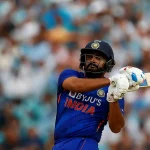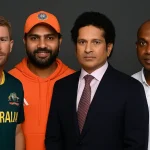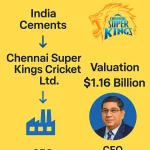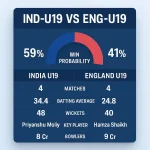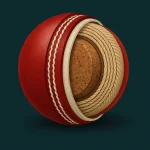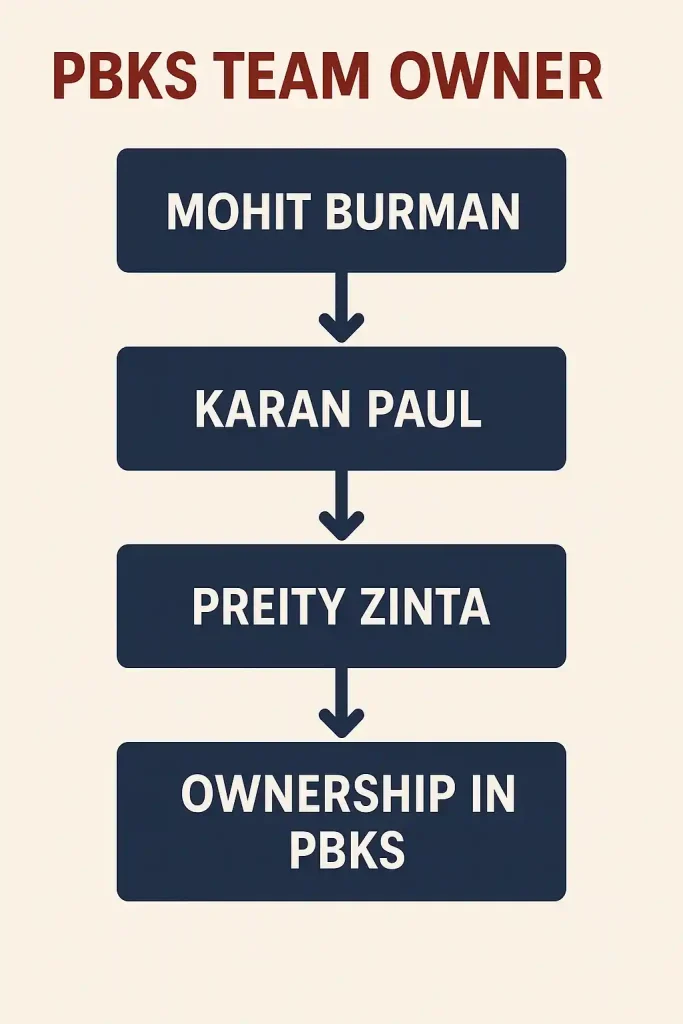
You can’t talk about the IPL without running into familiar faces — not just on the field, but off it. Boardroom deals, film stars in team jerseys, late-night auction drama — it’s part of the spectacle. And nowhere is this more vivid than with the Punjab Kings (PBKS). A team with flair, heartbreak, promise — and one of the most eclectic ownership groups in cricket. So, who really owns PBKS? And why does it matter more than you might think?
PBKS Team Owner: The Powerhouse Behind the Red Brigade
Punjab Kings isn’t the property of one lone billionaire. It’s a joint venture. The franchise is owned by KPH Dream Cricket Private Limited, a company formed to hold and operate the team. That’s the technical name — but it’s the personalities behind it that really shape the story.
Leading the charge is Mohit Burman, scion of the Dabur family, a name that’s practically synonymous with Indian consumer health products. He owns the largest stake and is seen as the financial and strategic anchor. Alongside him is Preity Zinta, the Bollywood actress whose passion for cricket is matched only by her visibility on match day — fist pumps, bright red jerseys, and all. Then comes Ness Wadia of the Wadia Group, and Karan Paul, chair of the Apeejay Surrendra Group.
This isn’t just a team of investors. It’s a cocktail of corporate precision and film-star charisma — and that’s very much by design.
Ownership Breakdown of PBKS
Here’s how the ownership of the Punjab Kings stacks up:
| Owner | Stakeholder Role | Primary Affiliation |
| Mohit Burman | Largest Stakeholder | Dabur Group |
| Preity Zinta | Co-owner, Public Face | Bollywood Actress |
| Ness Wadia | Co-owner, Strategic Role | Wadia Group (Bombay Dyeing) |
| Karan Paul | Silent Partner | Apeejay Surrendra Group |
Together, they own KPH Dream Cricket Pvt. Ltd., with shareholding structured to balance capital input, media reach, and strategic vision.
Preity Zinta: More Than Just a Brand Face
It is tempting to consider Preity Zinta exclusively as the celebrity face of PBKS, but that would be seeing her contributions to the franchise far too simplistically. Zinta was pivotal in creating early buzz for the franchise when it was still called Kings XI Punjab. Her on-ground support and emotionally charged reactions won her fan admiration. Zinta has also participated in marketing and public relations campaigns off the pitch, often bridging the appeal of brand decisions made in the boardroom to the audience’s reactions.
She gained notice in 2014 for filing legal action against Ness Wadia, which appears to be a fracture in the public ownership divide. One has to remember, owning a franchise in the IPL is anything but pastoral — it’s deeply embedded in drama, intrigue, and power battles.
Business Ventures Linked to PBKS Team Owner Group
While cricket is the public-facing venture, each stakeholder in PBKS brings a broader business legacy into play. Here’s a snapshot:
| Owner | Industry Footprint | Notable Companies |
| Mohit Burman | FMCG, Pharma, Financial Services | Dabur, Aviva India |
| Ness Wadia | Textiles, Airlines, Real Estate | Bombay Dyeing, GoAir (now Go First) |
| Karan Paul | Shipping, Hospitality, Tea, Retail | The Park Hotels, Apeejay Shipping |
| Preity Zinta | Media, Entertainment, Sports Investments | PZNZ Media, IPL Stake in PBKS |
In some ways, PBKS is the confluence of these industries — a product, a performance, and a business entity all rolled into one.
The IPL Refrains of Ownership: ‘The Kings’ Roller Coaster Ride’
From the perspective of franchise owners, PBKS (previously Kings XI Punjab) scoring major wins in IPL was nothing short of a miracle. The team was only launched back in 2008, which meant there was relatively little to lose at the time. Along with lackluster performance, underinvestment was the prevailing trend across the league. Caught in a vicious cycle of underperformance, PBKS struggled with consistency, making overspending on franchise fees seem like a gold standard.
From internal disputes to revising contracts and flirting with promises to sell during down seasons, the ownership group has faced a fair share of rumors and disinformation. I cannot shake off the image of Preity Zinta sitting silently during boardroom sessions. At the same time, the rest of the panel pushed for radical changes in IPL. Boardrooms are glamorous only in theory.
Along with the rebranding that took place in 2021, Zinta’s getting any recognition motivated her to tackle the blame without setting fire to her reputation. Notice the enhancements the franchise made to their investment approach and their embrace of young Indian talent.
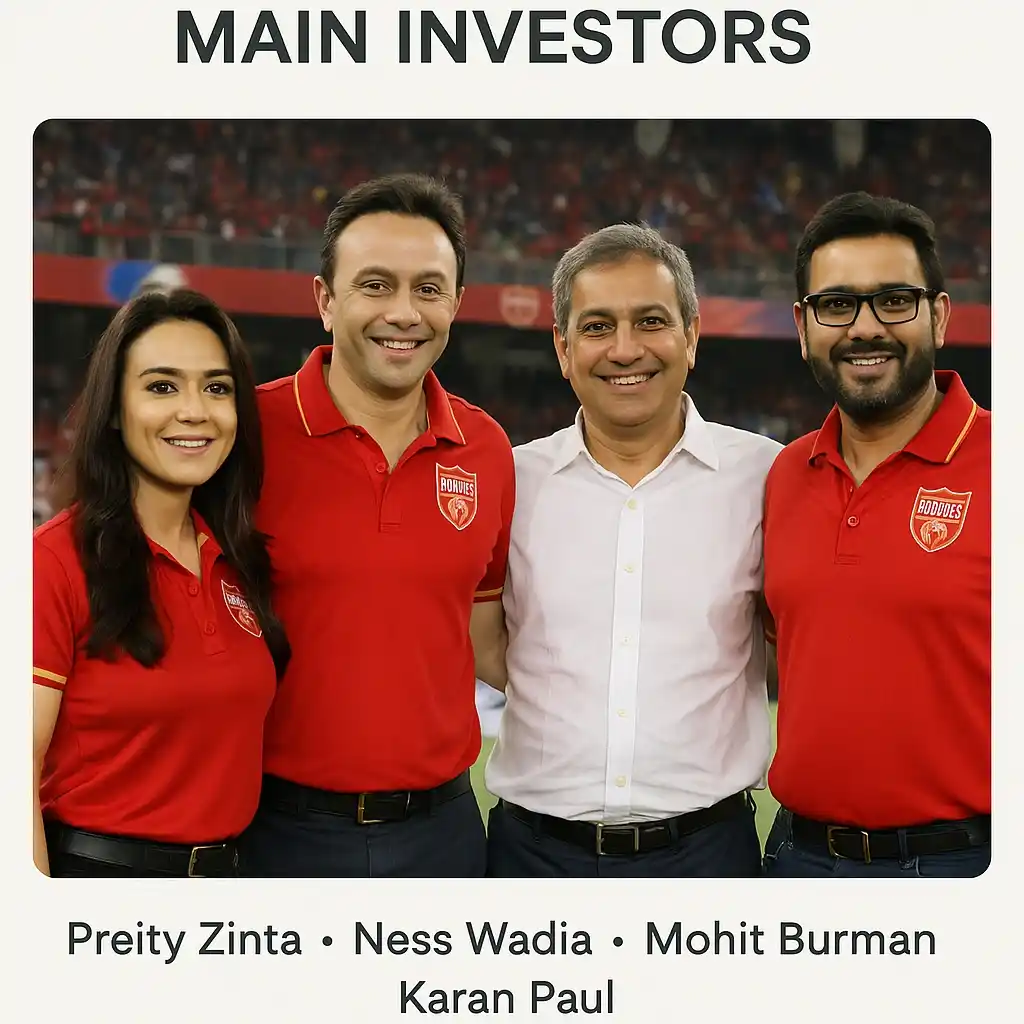
Why the PBKS Team Owner Structure Stands Out
In a league where many franchises are now owned by giant conglomerates — think Reliance for MI or Red Chillies for KKR — PBKS remains a bit of an anomaly. A mid-sized ownership group, tightly knit but occasionally visible in its internal differences. They’ve stayed independent, resisted full buyouts, and refused to simply become a satellite of a corporate empire.
They’ve also stayed Punjab at heart — a brand identity rooted in flair, unpredictability, and a hint of rebellion. When you see PBKS struggle, celebrate, or surprise — it’s not just about the eleven on the pitch. It’s about the minds and egos behind them.
Final Thoughts: What’s Next for PBKS?
The IPL is changing. Franchises are becoming global brands. PBKS, with their ownership muscle and cultural edge, are well-positioned to tap into this shift — if they can stabilize their on-field performance. The backing is there. The boardroom brains are there. What’s needed now is cohesion — not just from the players, but from the owners.
And perhaps that’s what defines the PBKS story so far — a franchise owned by high-achievers, celebrities, business moguls, all trying to script a sporting fairytale. Whether they succeed or not, they’re not afraid to do it loud, proud, and together.

Meet Arjun Kushaan, a passionate cricket analyst at The Cricket24x7. From street matches in his childhood to competitive college tournaments, cricket has always been a central part of Arjun’s life. With a strong background in data analysis and a natural affinity for numbers, he brings a fresh, analytical lens to the game. At The Cricket24x7, Arjun blends his deep love for cricket with his data-driven approach to deliver detailed insights and well-rounded coverage for fans of the sport.

